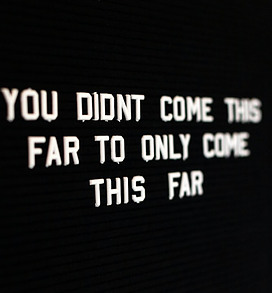
As an employee, some moments in our lives bring significant personal and professional changes. Menopause is one of those transformative phases that many women experience, and yet, it often remains shrouded in silence within the corporate world. Let’s explore an employee’s perspective on making menopause easier to understand, including how to initiate conversations and advocate for policies that can make this transition smoother for everyone involved.
First, I would like to introduce you to two career women:
Sarah
Sarah is a 43-year-old, accomplished marketing executive working in the corporate world for over 15 years. She’s known for her strategic thinking, leadership skills, and ability to handle high-pressure situations. However, over the past few years, Sarah has been experiencing perimenopause challenges, which have impacted her personal and professional life.
As Sarah navigates the perimenopausal phase, she faces a range of physical and emotional challenges. Hot flashes, night sweats, and disrupted sleep have led to fatigue and occasional lapses in concentration during important meetings. Mood swings and heightened anxiety have also impacted her ability to manage stress effectively, which is critical in her demanding role.
Maria
Maria is a 57-year-old senior financial analyst. Dedicated to her career for over three decades, she is recognized for her meticulous attention to detail and ability to provide accurate financial forecasts. Despite being post-menopausal, Maria continues to experience lingering menopausal symptoms that impact her professional life.
Even though Maria has officially entered the post-menopausal phase, she continues to face challenges related to menopause. She experiences occasional mood swings and struggles with brain fog and memory lapses during critical financial analyses. These symptoms have led to moments of self-doubt and frustration as Maria worries about her ability to maintain her high work standards.
Understanding the Impact
Menopause is more than a personal journey; it’s a shared experience that impacts colleagues, managers, and the entire work environment. The physical and emotional changes that come with it can affect productivity, well-being, and overall work experience. Raising awareness about menopause at work is about personal comfort and fostering a culture of empathy and inclusivity to create a healthier workplace for everyone.

Starting Conversations
1. Empowerment through Knowledge: You can initiate change as an employee. Start by educating yourself about menopause’s symptoms, challenges, and how it affects women differently. Knowledge empowers you to engage in conversations with colleagues and supervisors with confidence. You could also start with something as simple as a Menopause Symptom Checker.
2. Sharing Personal Stories: While you may feel vulnerable, sharing your experiences with menopause can spark meaningful dialogues. Personal stories can bridge gaps in understanding and help break the stigma around discussing this natural phase of life openly.
3. Seize Appropriate Moments: Find opportunities to discuss menopause in the workplace. During team meetings, casual conversations, or dedicated diversity and inclusion events, seizing these moments can create awareness and foster understanding.
4. Ask for Support: If you’re comfortable, reach out to your HR (Human Resources) department or management to discuss how menopause can impact your work. By initiating this conversation, you’re advocating for yourself and other employees experiencing the same challenges.

Advocating for Policies
1. Flexible Work Arrangements: As an employee navigating menopause, you understand that some days are more challenging than others. Advocate for flexible work arrangements that allow you to manage your energy levels effectively. Adjusting work hours, working remotely on occasion, or even temporarily reducing your workload can make all the difference in your productivity.
2. Educate HR and Management: Take the initiative to educate HR and management If there’s a lack of understanding about menopause in your workplace. Share resources, articles, and insights to help them comprehend the challenges you and other women face during this phase. Check out this Menopause Life Magazine, which is full of articles to help improve your health, both physical and mental. By signing up, you will also get a code for a free magazine.
3. Wellness Initiatives: Collaborate with your colleagues to propose wellness programs that cater to menopause-related needs. These events and activities could include mindfulness sessions, yoga classes, a Lunch and Learn, or access to counselling services to support your and your colleagues’ mental and emotional well-being.
4. Creating Supportive Networks: Consider starting an employee resource group focused on women’s health, including menopause. Having a community of like-minded individuals can provide emotional support and amplify your collective voices when advocating for change.
Measuring Progress
As you work towards raising awareness and advocating for support, keep these points in mind:
1. Conversation Frequency: Track how often menopause-related discussions occur within the workplace. An increase in these conversations could signify a growing awareness.
2. Policy Changes: If your advocacy efforts result in policy changes such as flexible work arrangements or wellness programs, these tangible shifts indicate progress.
3. Feedback and Engagement: Consider how colleagues respond to your conversations and initiatives—engagement and upbeat feedback show that your efforts are resonating.
4. Personal Well-Being: Ultimately, the success of these endeavours should contribute to your comfort and well-being at work. Feeling supported and understood in your workplace journey is a significant achievement.
Now, let’s go back to Sarah and Maria and their actions.
Sarah’s Adaptations and Maria’s Transitions:
Recognizing the need to prioritize her well-being, Sarah decides to take proactive steps. She speaks to her supervisor about her situation, requesting a more flexible work schedule that allows her to manage her energy levels better. This change includes remote work options and the ability to adjust meeting times. She also started incorporating mindfulness practices into her daily routine to manage stress and improve focus.
During this post-menopausal phase, Maria decides to explore new avenues within her career. She takes on a leadership role in sustainability initiatives within her firm, capitalizing on her industry expertise to drive positive change. Maria also started dedicating more time to public speaking engagements, sharing her journey of overcoming challenges in male-dominated fields to inspire other women.
Outcomes
Sarah’s open communication with her supervisor fosters understanding, and the flexible work arrangements increase productivity. By implementing mindfulness techniques and lifestyle changes, she becomes better equipped to handle stress and maintains her effectiveness in high-pressure situations. Sarah’s ability to navigate perimenopause and adapt her approach ultimately solidifies her reputation as a resilient and capable leader.
Maria’s focused energy and wealth of experience lead to innovative solutions in her architecture projects. Her leadership in sustainability earns her recognition within the industry and brings a sense of purpose to her work. Through her public speaking, Maria becomes a role model for younger women, proving that post-menopausal years can be a time of flourishing creativity and impactful contributions.
Conclusion
As an employee, your voice holds tremendous power in shaping the corporate environment. By bringing menopause awareness to the forefront, initiating conversations, and advocating for policies that accommodate this life phase, you’re championing your well-being and paving the way for a more empathetic, supportive, and productive workplace for all. Remember, your journey through menopause is a part of your story, and your willingness to share it can lead to positive change that resonates far beyond your own experience.
Have you struggled to find fulfillment in your career during midlife and menopause? Are you looking at adapting like Sarah or transitioning like Maria? Then my three-month program is for you.
EVERY Wednesday from 7 pm to 8 pm Eastern time starting on SEPT 20th, my three-month program will empower you with:
- Career strategies and how to find fulfillment in adapting or transitioning
- How to conquer menopause in the workplace, and
- How do you define your legacy?
Click here for more details about the three-month program. Or reply to this email if you have any questions.
Do you feel stuck in your career? Book a chat time with me here 😊
TO: Human Resources, Team Lead or Managers empower your workforce and foster an inclusive environment by championing the cause of menopause awareness through thoughtful policies, ensuring every employee thrives at every stage of their professional journey. Book a call with me to inquire about my Lunch and Learn: Navigating Menopause in the Workplace.
Until next week,
Be at peace, just where you are.
Joanne Savoie-Malone

